Editorial Board
The Journal of Taiji Science (JTS) is supported by an international Editorial Board composed of interdisciplinary experts across science, medicine, humanities, and traditional practices. We are currently in the process of expanding our Board membership.
(in no particular order)
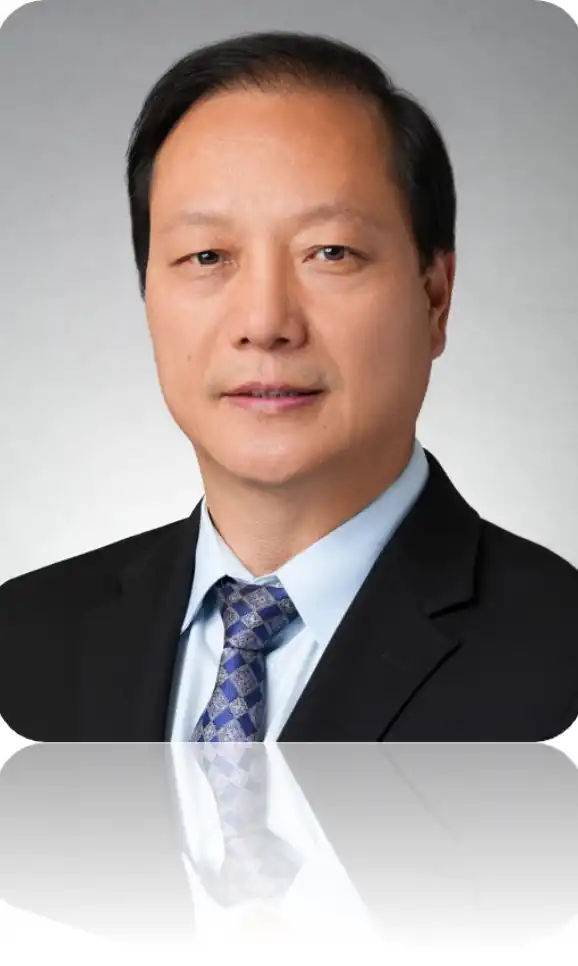
Shudong Li, Ph.D. (USA) Bio
Dr. Shudong Li serves as President of the World Taiji Science Federation (WTSF), President of the World Wushu Open Championships (WWOC), and Editor-in-Chief of the Journal of Taiji Science (JTS). He completed his undergraduate studies at Luoyang Normal University and earned his Ph.D. in Sport Science from Shanghai University of Sport. As a 12th-generation inheritor of Chen-style Taijiquan, he is internationally recognized in the fields of traditional martial arts, health promotion, and mind-body integration.
Dr. Li previously served as Founding Vice President of the International Health Qigong Federation, Commissioner of the California Acupuncture Board, and a Committee Member of the Kungfu Committee of the International Wushu Federation (IWUF). He has led the U.S. national team as coach, judge, and delegation head at multiple international martial arts competitions.
As the founder of the Stanford University Medical Taiji Course, Dr. Li pioneered the integration of Taiji practice with modern anatomy, preventive medicine, and educational innovation. He plays a key leadership role in advancing the global integration of traditional mind-body practices into contemporary health and education systems.
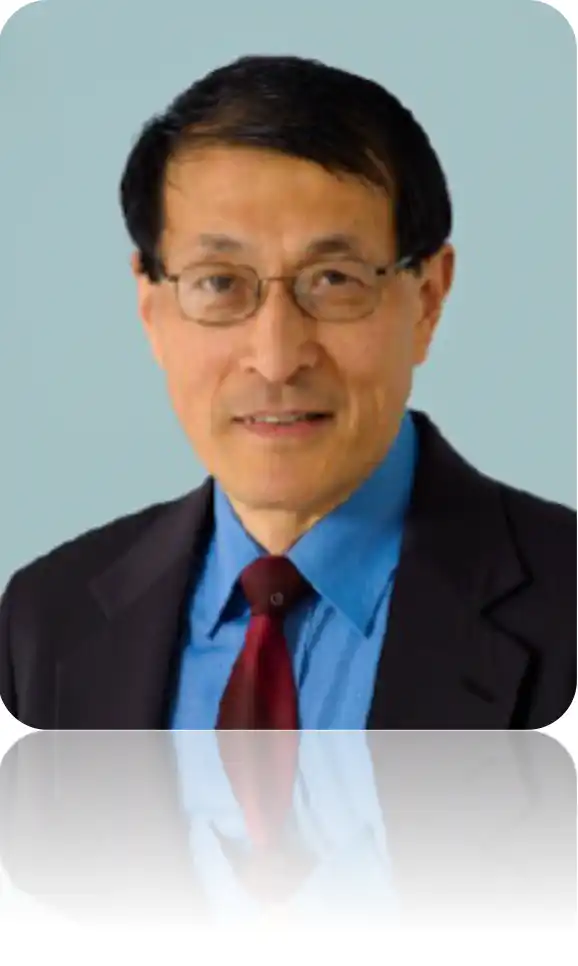
Weimo Zhu, Ph.D. (USA) Bio
Dr. Weimo Zhu is an internationally recognized authority in Kinesmetrics—the science of measurement and evaluation in the field of kinesiology. He earned his Ph.D. from the University of Pittsburgh and has conducted extensive research on physical fitness testing, physical activity surveillance, youth health, and the scientific evaluation of mind-body practices such as Taiji and Qigong. He has published over 100 peer-reviewed articles in SCI/SSCI-indexed journals and has served as Principal Investigator on major research grants funded by the U.S. National Institutes of Health (NIH) and the Robert Wood Johnson Foundation (RWJF).
He previously served as Editor-in-Chief of Research Quarterly for Exercise and Sport, one of the leading journals in the field of physical activity and sport science. In addition, Dr. Zhu has contributed to numerous U.S. national expert panels focused on youth fitness standards, physical activity guidelines, and health promotion policy.
A long-time practitioner and scientific advocate of traditional Chinese wellness practices, Dr. Zhu is a strong proponent of integrating Taiji and Qigong into evidence-based wellness models. His leadership bridges East and West, combining rigorous scientific methodology with the holistic principles of traditional mind-body disciplines
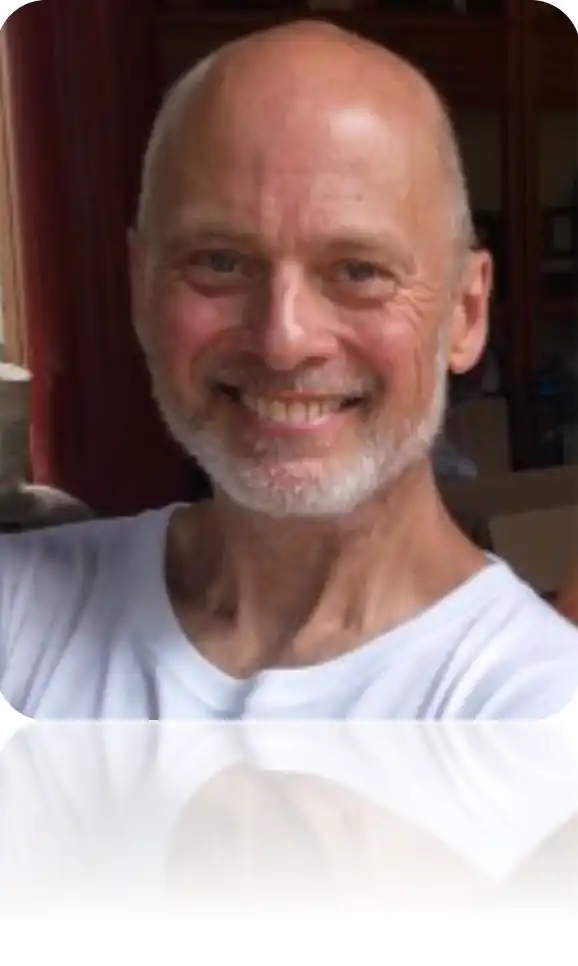
Hugh B. Solvason, Ph.D., M.D. (USA)
Professor of Psychiatry, Stanford University
Director, Stanford Neuromodulation Therapy Clinic
Dr. Hugh B. Solvason is Professor of Psychiatry at Stanford University and Director of the Stanford Neuromodulation Therapy Clinic. He is an internationally recognized expert in the treatment of mood disorders, with a primary focus on treatment-resistant depression. His clinical and research work spans advanced neuromodulation techniques, including transcranial magnetic stimulation (TMS), ketamine therapy, and emerging psychedelic-assisted psychotherapy.
With a career dedicated to integrating cutting-edge neuroscience and personalized medicine, Dr. Solvason has contributed to pivotal studies that have expanded therapeutic options for patients unresponsive to conventional treatments. He collaborates across disciplines to develop precision approaches that combine neurobiological insights, psychotherapeutic interventions, and lifestyle strategies to enhance mental health outcomes.
As a member of the Editorial Board of the Journal of Taiji Science, Dr. Solvason brings deep expertise in neuropsychiatry and mind–body integration. His leadership supports the journal’s mission to advance interdisciplinary research connecting traditional health practices, modern neuroscience, and innovative treatments in integrative mental wellness.

Harold J. Recinos, Ph.D. (USA)
Professor of Church and Society, Southern Methodist University
Dr. Harold J. Recinos is Professor of Church and Society at the Perkins School of Theology, Southern Methodist University. A cultural anthropologist, Latino theologian, and acclaimed poet, his scholarship focuses on the lived experiences of undocumented Central American migrants and the Salvadoran diaspora, examining themes of cultural identity, social justice, and spiritual resilience.
He has published 19 poetry collections and contributed to numerous academic journals and edited volumes. His work integrates ethnographic insight with poetic imagination, illuminating the intersections of faith, culture, and community healing. Through both scholarly research and creative writing, Dr. Recinos advances understanding of how narrative and art shape individual and collective well-being.
As a member of the Journal of Taiji Science Editorial Board, Dr. Recinos brings a distinctive humanistic perspective, enriching interdisciplinary dialogue on integrative mind–body approaches by highlighting the role of storytelling, creativity, and cultural consciousness in fostering holistic health and resilience.
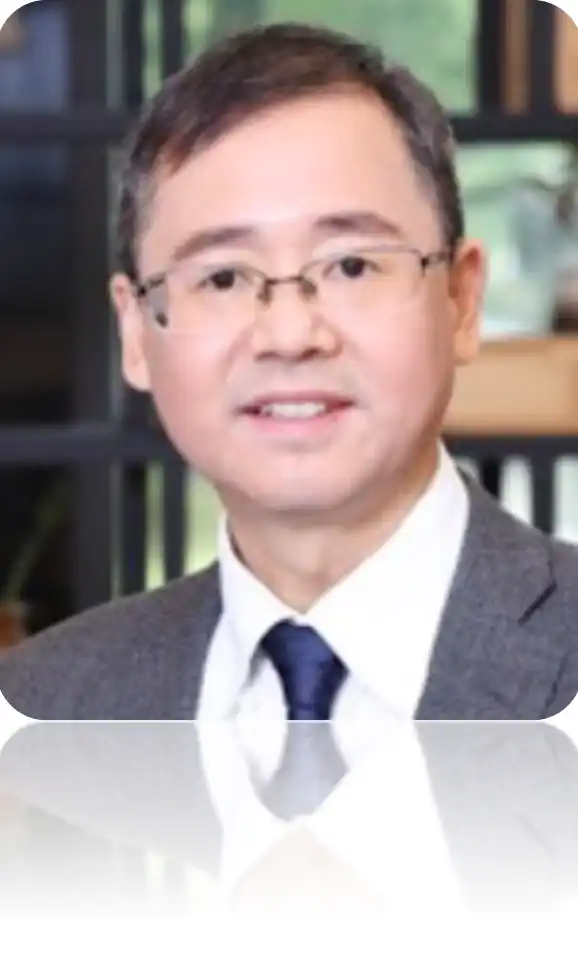
Qiang Lin PhD. (China)
Professor and Doctoral Supervisor
School of Physics, Zhejiang University
Prof. Qiang Lin is a renowned scholar with more than 30 years of research in optical physics and quantum measurement. He has led major national projects and advanced China’s development of precision instrumentation and photonic technologies. He has published over 200 SCI-indexed papers and authored influential monographs such as Foundations and Frontiers of Modern Optics. His research spans light–matter interaction, nonlinear optics, and quantum sensing, and his work is widely cited in physics and engineering.
In recent years, Prof. Lin has pioneered interdisciplinary studies that bridge modern optics with traditional Chinese health practices. By applying physical theories and experimental methods, he explores the energetic and physiological mechanisms of Taiji and Qigong, offering scientific explanations that connect classical wisdom with contemporary science.
Through his leadership and innovative vision, Prof. Lin continues to influence both fundamental physics and interdisciplinary health research. His work fosters integration of mind and body while promoting dialogue between Eastern traditions and Western science, making him a key figure in uniting modern technology with human well-being.
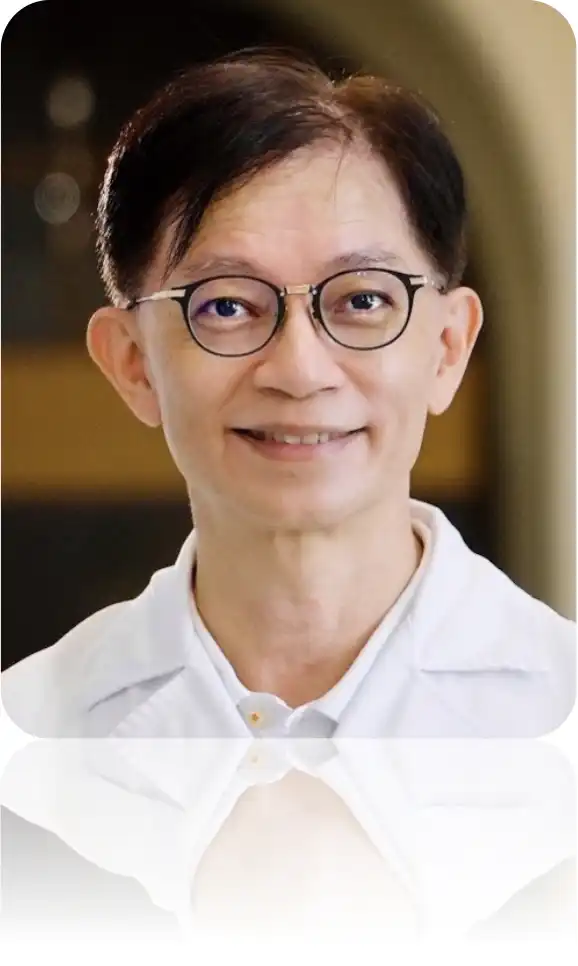
Professor Wei-Zen Sun, MD, EMBA
(Taiwan China)
Professor Emeritus of Anesthesiology at Taiwan University and currently Chair of the Pain Management Center at Cathay General Hospital.
Adjunct Professor in Taiwan University’s EMBA and Biomedical Electronics Institutes and as Research Fellow at the Health Science and Wellness Center.
He was formerly the Chair of Anesthesiology at Taiwan University and served as President of the Taiwan Pain Society. A visiting professor at Tsinghua University in Beijing, Prof. Sun integrates medicine, neuroscience, technology, and holistic health in his work.
He is Editor-in-Chief of the Asian Journal of Anesthesiology, Associate Editor of Journal of the Formosan Medical Association and Anesthesia & Analgesia (Chinese Edition). He has published over 180 SCI-indexed journal papers and more than 200 total academic works, focusing on pain management, anesthesiology, cancer immunotherapy, and mind-body health mechanisms including Taiji research.
He is an inventor of several award-winning clinical innovations (i-Pain®, Sunscope®, Lidocap®, FINEscope®), and serves in multiple public health and advisory roles, including Chair of the Health Communication Committee at the Taiwan Medical Association.
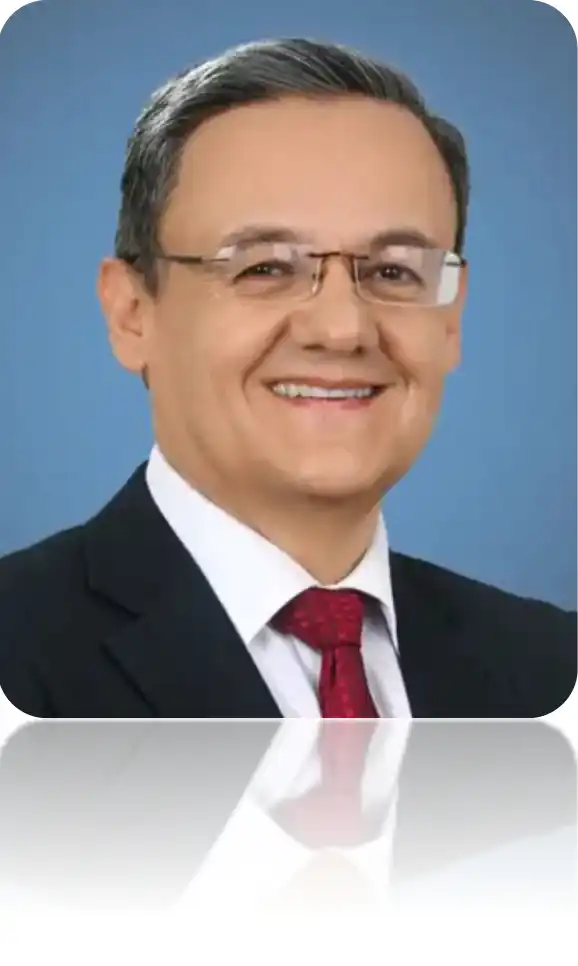
Luis Fernando Cruz Quiroga MD, Esp, PhD. (Colombia)
Director, PhD Program in Exercise and Health
Dr. Luis Fernando Cruz Quiroga is a physician and expert in Traditional Chinese Medicine, holding a Ph.D. and postdoctoral training in Complex Systems and Cognitive Neuroscience from the University of South Florida, USA. He is a 4th Dan Black Belt in Taijiquan and has over 30 years of experience integrating Taiji and Qigong into clinical practice, medical education, and community health programs. Dr. Cruz currently serves as Professor of Integrative Medicine and Neuroscience and Director of the Ph.D. Program in Physical Activity, Exercise, and Integrative Health at Manuela Beltrán University in Colombia. His interdisciplinary research explores the physiological and neurological mechanisms behind traditional mind-body practices, emphasizing their role in enhancing neuroplasticity, emotional resilience, and chronic disease prevention. Through combining neuroscience, martial arts, and integrative health strategies, he is committed to advancing the therapeutic use of Taiji-Qigong and contributing to the global development of evidence-based traditional medicine.
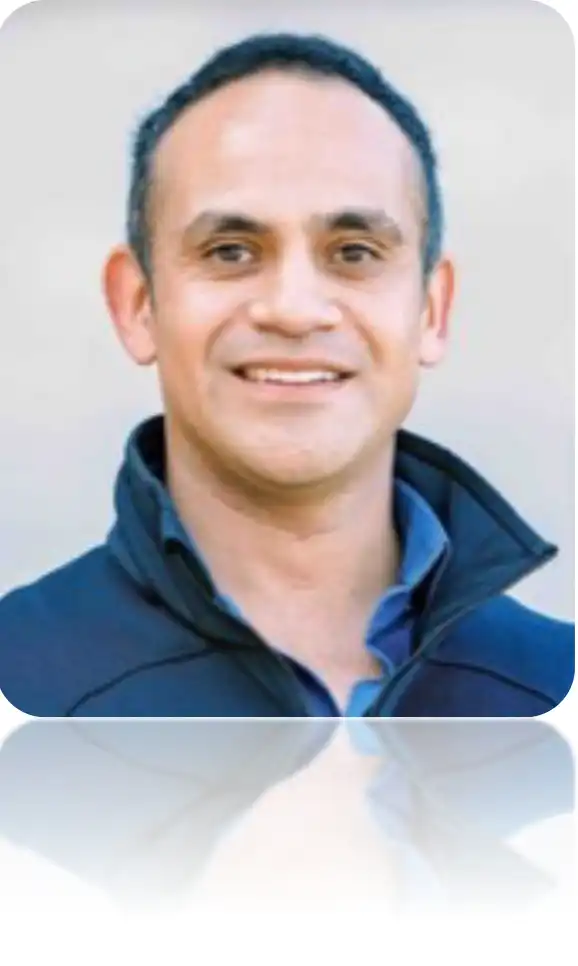
Samuel Montalvo PhD. (USA / México)
Dr. Montalvo is supported by fellowships from the Wu Tsai Human Performance Alliance and the NIH T32 Myocardial Biology Program. His research integrates biomechanics, clinical exercise physiology, and multi-omics approaches to uncover the molecular foundations of human performance. At Stanford University's Bioinformatics Core, he leads data analysis for the NIH-funded MoTrPAC project and contributes to studies in sports cardiology, cardiopulmonary exercise testing, neuromuscular disorders, and elite athletic performance.
He holds certifications as a Certified Performance & Sport Scientist (CPSS) and a Strength & Conditioning Specialist with Distinction (CSCS,*D). Beyond academia, Dr. Montalvo is an active member of Mexico’s national Wushu team and spearheads an international research initiative focused on martial arts. He is particularly interested in integrating traditional practices such as Taiji into evidence-based exercise-as-medicine models. His long-term goal is to promote health and resilience across diverse populations by merging modern science with time-honored movement systems like martial arts and Taiji.
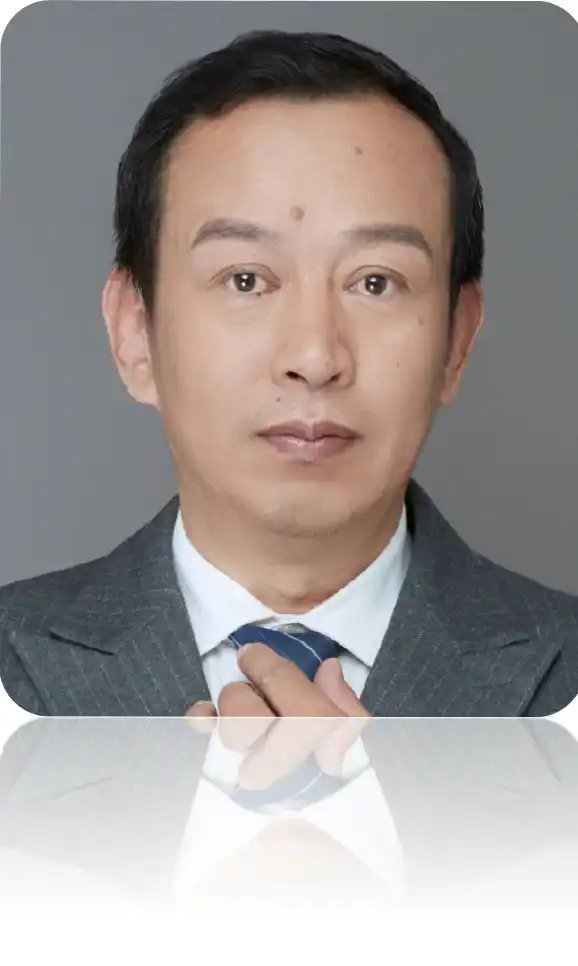
Yang Xiangquan PhD. (China)
Dean, School of Physical Education, Yunnan Minzu University
Director, China-India Yoga Institute & International Taiji Institute
Dr. Xiangquan Yang is a distinguished scholar and practitioner. He holds an 8th Duan in Chinese martial arts and a 7th Duan in Health Yoga, and serves as a certified national judge in multiple disciplines. He earned his Ph.D. in History and completed postdoctoral research in folklore studies, with a focus on ethnic movement culture.
Prof. Yang has authored 22 books and published over 100 academic papers in areas including ethnic traditional sports, Chinese wellness practices, and the integration of Wushu with traditional medicine. His work emphasizes the preservation, innovation, and international dissemination of traditional mind-body disciplines. Under his leadership, Yunnan Minzu University has emerged as a center for interdisciplinary research and cross-cultural exchange in Taiji, Yoga, and indigenous physical culture. His contributions continue to shape global perspectives on traditional movement systems.
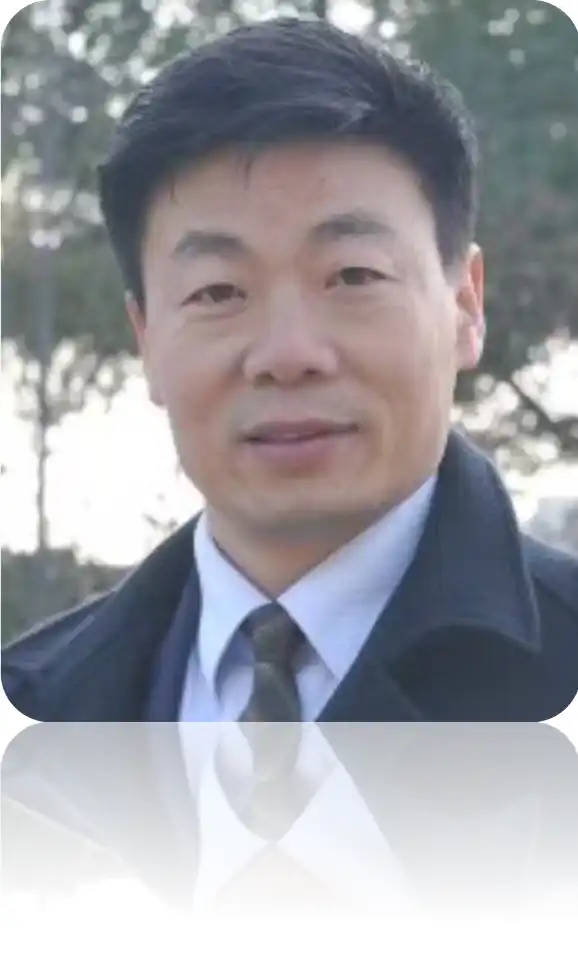
Lixu Tang PhD. (China)
“Donghu Scholar” Distinguished Professor
Dr. Lixu Tang is a leading authority in traditional Chinese sports culture and health-oriented exercise science. He currently serves as Dean of the School of Wushu at Wuhan Sports University and holds the prestigious title of “Donghu Scholar” Distinguished Professor. With a Ph.D. in Sport Science, Prof. Tang has made significant contributions to the integration of traditional movement practices—such as Wushu and Qigong—into modern health promotion and national fitness strategies.
He has published over 70 SCI-indexed research papers and led more than 30 national-level research projects in areas including therapeutic sports medicine, traditional movement culture, and preventive healthcare. His interdisciplinary work bridges traditional Chinese physical culture with contemporary exercise science and public health. Widely recognized for both academic leadership and policy impact, Prof. Tang plays a pivotal role in promoting the scientific development and global dissemination of Wushu and other mind-body practices.
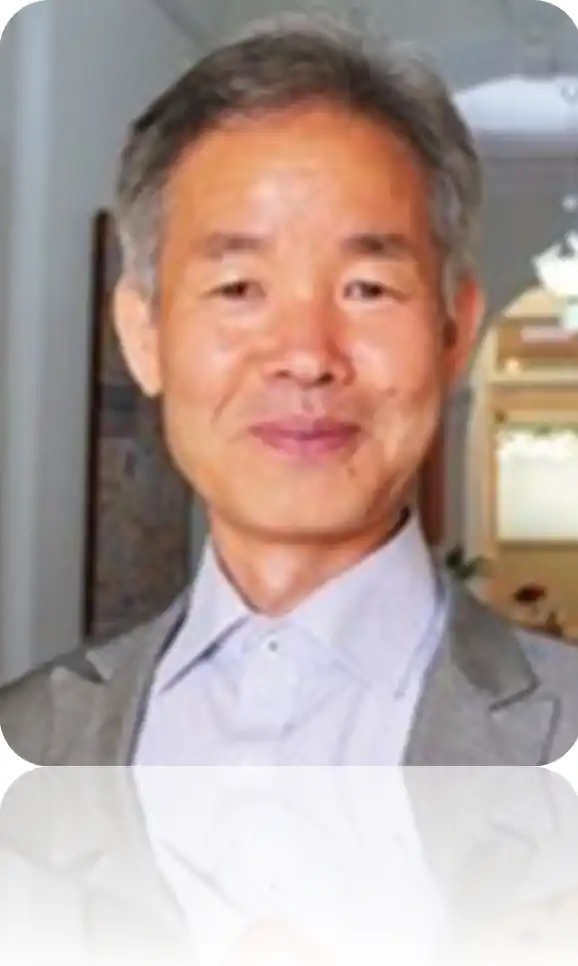
Byeongsang Oh PhD (Australia / USA)
President, International Medical Tai Chi Qigong Association
Dr. Byeongsang Oh is an internationally recognized expert in integrative oncology, serving as Clinical Associate Professor at Sydney Medical School and President of the International Medical Tai Chi Qigong Association (iMTQA). His expertise includes medical Tai Chi and Qigong, acupuncture, lifestyle medicine, and gut microbiome research in cancer care.
He has published over 60 peer-reviewed articles with more than 2,400 citations, contributing significantly to evidence-based complementary therapies. His work bridges Eastern and Western medicine, emphasizing the role of mind-body practices in improving quality of life for cancer patients and survivors. Dr. Oh has also served as Guest Editor for academic journals in integrative medicine and oncology microbiota, and is an active member of ASCO and SIO. Through his clinical, academic, and organizational leadership, he continues to shape the global development of integrative cancer care.
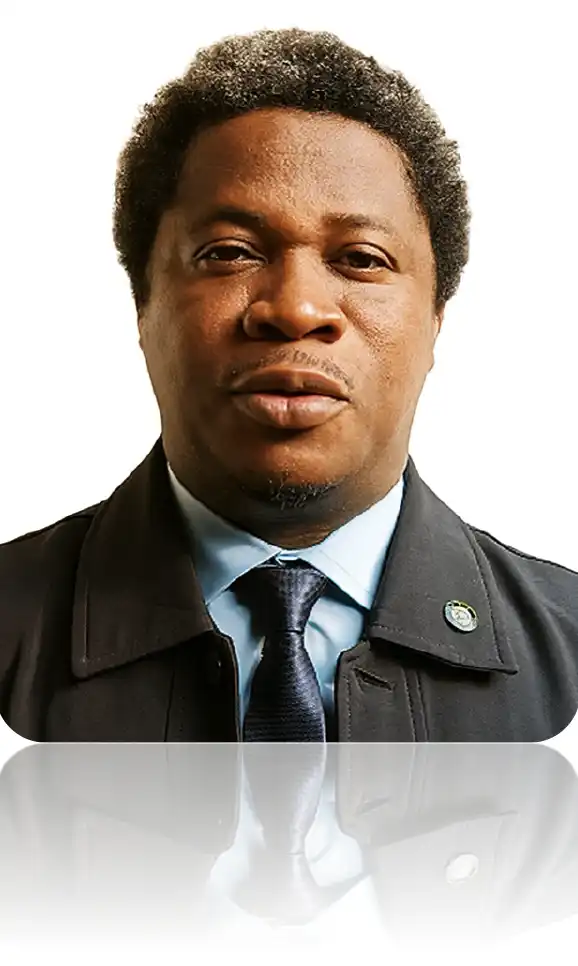
Dr. Selay Marius Kouassi, Ph.D.
Dr. Selay Marius Kouassi is a university professor and interdisciplinary researcher based in Côte d’Ivoire, working across education, health promotion, and cultural communication. He collaborates with institutions in Africa, Asia, Europe, and North America, and is active on platforms like Academia.edu and ORCID (0000-0001-8732-7484).
He founded Uni-Wushu and the Côte d’Ivoire Health Qigong Association, promoting Wushu, Taiji, and Health Qigong in African universities and scientific communities. He has organized cross-cultural events with Chinese experts and won medals representing Côte d’Ivoire in Wushu and Qigong competitions in China, Austria, Japan, and the U.S.
Dr. Kouassi is also a certified international Wushu Taolu referee and an investigative journalist with work featured in The Guardian, BBC, and DPA. His work bridges martial arts, public health, education, and international media.
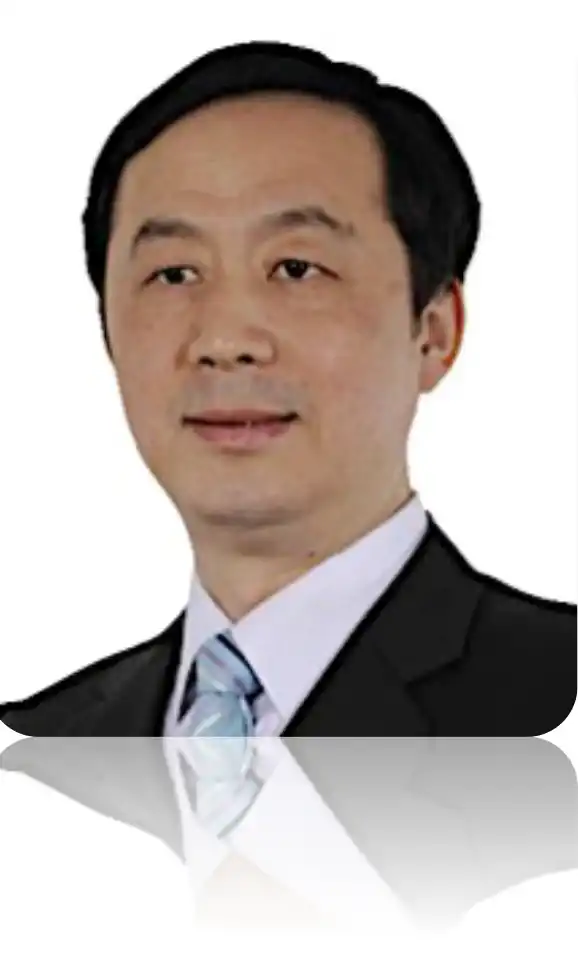
Dr. Xiaofei Hu (China)
Professor, Beijing Sport University
Doctoral Supervisor; Deputy Director, Technical Committee, International Health Qigong Federation (IHQF)
Dr. Xiaofei Hu is Professor and Director of the Department of Sport Health Preservation at Beijing Sport University, as well as a Ph.D. and postdoctoral advisor. A leading expert in traditional Chinese health-preserving exercise, his research spans Taiji, Daoyin, Health Qigong, and related mind–body disciplines.
He has led more than ten national research projects, published over 30 academic papers, and served as chief or contributing editor of influential instructional texts such as Qianlong Health Exercises and Ba Duan Jin for Strengthening the Body. He played a key role in developing national standard routines including Health Qigong: Twelve-Step Brocade and Daoyin Health-Preserving Exercise: Twelve Methods, advancing both the modernization and global promotion of traditional practices.
Prof. Hu has delivered academic lectures and training in over 30 countries, including the United States, Japan, Germany, and France, and was the first scholar to present Chinese health culture at the United Nations Headquarters. His students, from more than 50 countries, have achieved top honors in international Qigong and Taiji competitions.
As a member of the Editorial Board of the Journal of Taiji Science, Prof. Hu brings authoritative expertise, academic leadership, and a global perspective to the field of traditional health culture.

Dr. Beverley Kane (USA)
Adjunct Clinical Assistant Professor, Stanford University School of Medicine
Dr. Beverley Kane is a physician and medical educator at Stanford University, where she serves as Adjunct Clinical Assistant Professor in the Department of Medicine. She is the Program Director of “Medicine & Horsemanship” and “Equine-imity Somatic Horsemanship,” both of which integrate equine-assisted experiential learning into medical training to promote empathy, communication, and self-regulation. She also teaches Medical Tai Chi to health professionals and students, emphasizing somatic awareness and mind-body healing.
Dr. Kane earned her M.D. from the University of California, San Francisco and has over 30 years of experience across clinical medicine, digital health, medical informatics, and therapeutic movement. She has worked with leading institutions including Apple, UCSF, and WebMD, contributing to innovations in electronic health records and patient-provider communication.
She is a certified Tai Chi instructor under the Tai Chi for Health Institute (Australia) and holds advanced certifications in equine therapy. Her publications include The Manual of Medicine & Horsemanship and Equine-imity Somatic Horsemanship.
Dr. Kane’s interdisciplinary work bridges traditional medicine, somatic practice, and integrative therapies, making her a unique contributor to the global dialogue on healing through movement and embodiment.
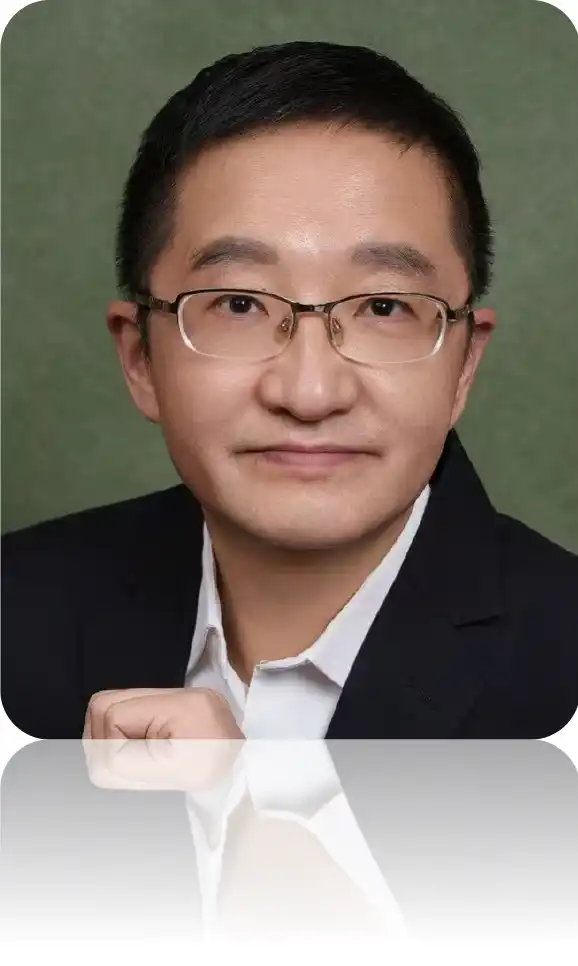
Prof. Yulong Wei (China)
Professor, Doctoral Supervisor, Chief Editor of Chinese Medical Exercise Science
Prof. Yulong Wei is Professor, Chief Physician, Doctor of Medicine, Doctoral Supervisor, and University-level Teaching Master at Beijing University of Chinese Medicine (BUCM). He is Director of the Qigong Teaching and Research Section and Deputy Director of the Clinical Department at the School of Acupuncture and Tuina, and chief editor of the national textbook Chinese Medical Exercise Science.
He serves as Vice President of the World Academic Society of Medical Qigong, Vice Chair of the Non-pharmacological Therapy Branch of the China Association of Gerontology and Geriatrics, and Standing Committee Member of the WFCMS Professional Committee of Pulmonary Rehabilitation.
Prof. Wei has led five national and four provincial-level projects, published over 200 papers, and authored or edited 28 books. His honors include two Science and Technology Awards from the China Association of Chinese Medicine, a provincial third prize in science and technology progress, and a provincial second prize in teaching achievement. He holds two national patents and developed the first industry-level MOOC Introduction to Chinese Medical Qigong.
With nearly 30 years of clinical experience, he integrates acupuncture and qigong with modern medicine, creating the “Meridian Qi-guiding Acupuncture Method” for orthopedic, neurological, and chronic diseases, advancing active training and integrative therapies.
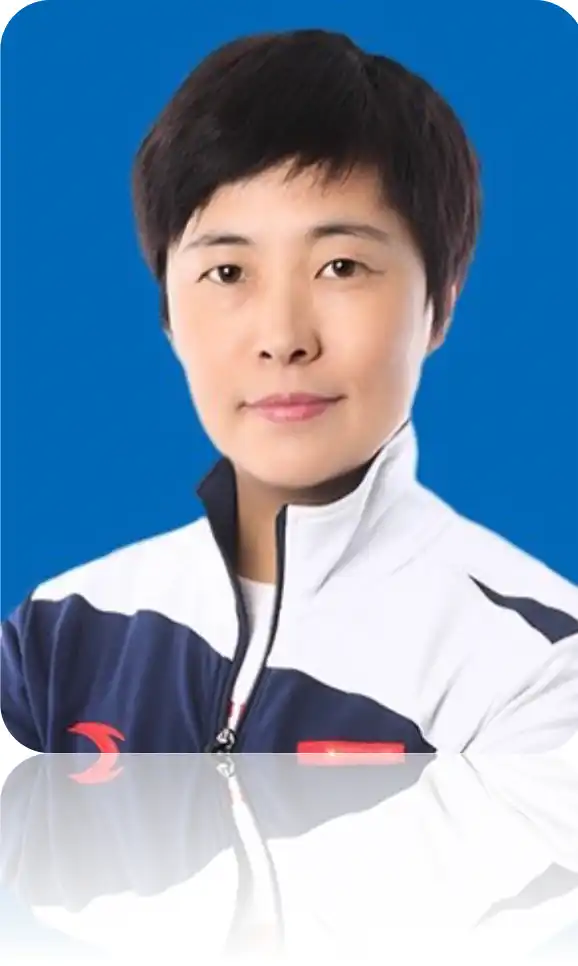
Dr. Xin Xue (China)
Professor, Doctoral Supervisor
Dr. Xin Xue is Professor and Doctoral Supervisor specializing in Wushu culture, education, and health promotion through ethnic traditional sports. She earned her Ph.D. in Ethnic Traditional Sports from Beijing Sport University, M.A. in Curriculum and Teaching Theory (Physical Education) from Liaoning Normal University, and B.A. in Physical Education from Shenyang Sport University.
She holds the 6th Duan in Wushu, is a National-Level Judge in Wushu Sanda, and a First-Class National Judge in Wushu Taolu. In Health Qigong, she holds the 7th Duan, is a National-Level Judge, and a National-Level Social Instructor. Dr. Xue also serves as part-time doctoral supervisor at Krirk University, Thailand; Deputy Secretary-General of the World Taiji Federation; Executive Director and Professional Committee Deputy Director of the Zhejiang Health Qigong Association; and member of the Academic Degree Committee at Hangzhou Normal University.
She has led 2 national and 5 provincial/ministerial projects, published over 40 academic papers, and authored or co-authored 3 textbooks, including one commissioned by the General Administration of Sport of China. Her honors include the Liaoning Province Academic Achievement Third Prize, the General Administration of Sport Teaching Achievement Second Prize, and multiple provincial teaching awards.
Dr. Xue has served as referee in numerous provincial, national, and international competitions and has been invited to teach Health Qigong in Italy, Germany, Cuba, Argentina, Canada, and other countries.
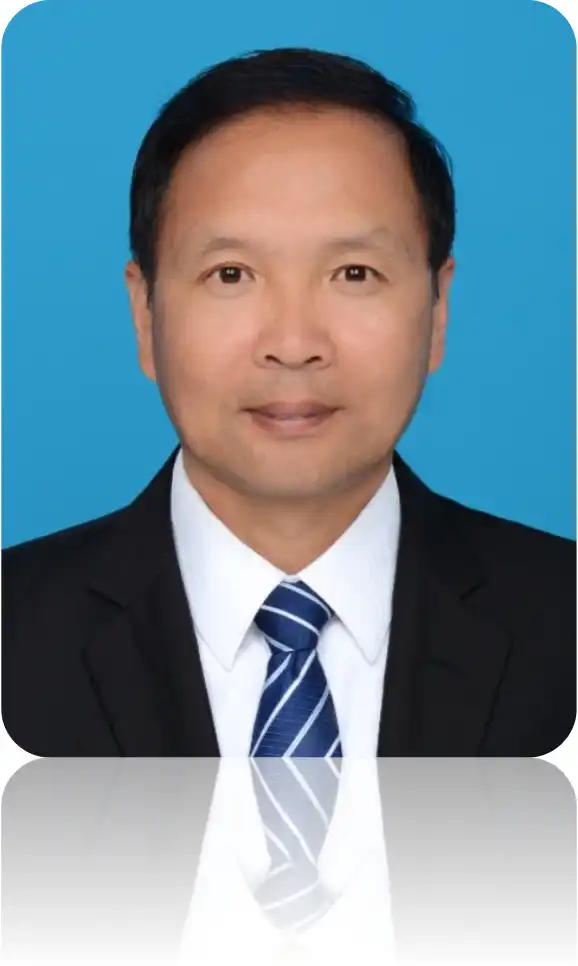
Dr. Hongyu Si (China)
Professor, Doctoral Supervisor, Vice Dean, School of Physical Education, Zhengzhou University
Dr. Hongyu Si, born in February 1973, is Professor, Doctoral Supervisor, and Vice Dean of the School of Physical Education at Zhengzhou University. He is recognized as an Academic and Technical Leader by the Henan Provincial Department of Education, a Provincial Young and Middle-aged Backbone Teacher, a “National Elite Program” trainee in Health Qigong, and a National Advanced Individual in Health Qigong Promotion. He holds the 8th Duan in Health Qigong, and is a National-Level Referee and National-Level Social Sports Instructor.
He has represented Zhengzhou University and been dispatched by the General Administration of Sport of China and the Henan Foreign Affairs Office to promote Health Qigong and Wushu in Canada, Spain, Indonesia, Belgium, Japan, and Mauritius, making significant contributions to global cultural exchange.
Dr. Si has served as Chief Referee for the Henan Provincial Games Health Qigong competition for four consecutive terms, and as Chief Referee or Referee in numerous national events. He has trained about 1,800 individuals as first- and second-level referees and social sports instructors.
He has published over 60 academic papers, including 15 in SCI, CSSCI, or core journals, led 5 provincial/ministerial-level and 10 departmental-level projects, including 1 national key project, and authored 3 monographs and edited 10 books. His honors include a Third Prize in the Henan Social Science Outstanding Achievement Awards, three First Prizes, two Second Prizes for provincial research papers, and multiple departmental awards.
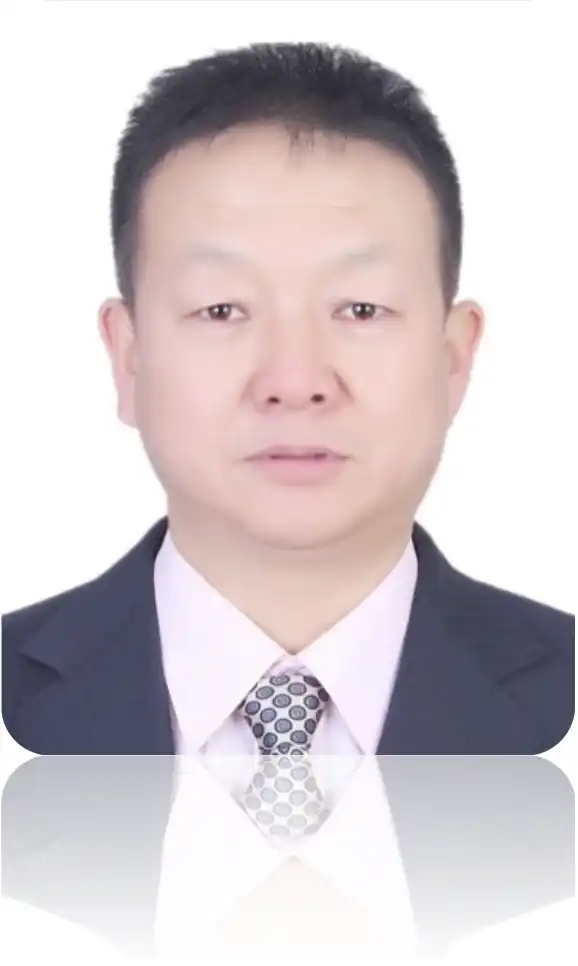
Prof. Zheng’en Li (China)
Professor, Master’s Supervisor, Vice Dean, School of Wushu, Xi’an Physical Education University
Prof. Zheng’en Li, born in July 1972, is Professor, Master’s Supervisor, and Vice Dean of the School of Wushu at Xi’an Physical Education University. He is a member of the Academic Committee, academic leader, and head of the Wushu and Ethnic Traditional Sports program, and is recognized as a Teaching Master of the university.
He holds leadership roles in multiple national and provincial sports organizations, including Board Member of the Chinese Wushu Association, Chinese Health Qigong Association, and Shaanxi Sports Science Society. He is an International-Level Health Qigong Judge, National-Level Wushu Taolu Judge, and National-Level Health Qigong Social Sports Instructor, and serves as President of the Shaanxi Health Qigong Association. He holds the 8th Duan in Health Qigong and 7th Duan in Wushu, and is an executive member of several provincial sports and cultural associations.
As a chief lecturer for the National-Level Social Sports Instructor Program and an international Health Qigong expert for the General Administration of Sport of China, he has conducted lectures and training in over 20 countries. He is also an expert for the Shaanxi Healthy Cell Demonstration Project, and a member of the Provincial Committees on Physical Fitness and Health, Sports-Medicine Integration, and Taijiquan.
His main research focuses on Wushu and Ethnic Traditional Sports, promoting the integration of traditional Chinese sports culture with contemporary health practices at home and abroad.
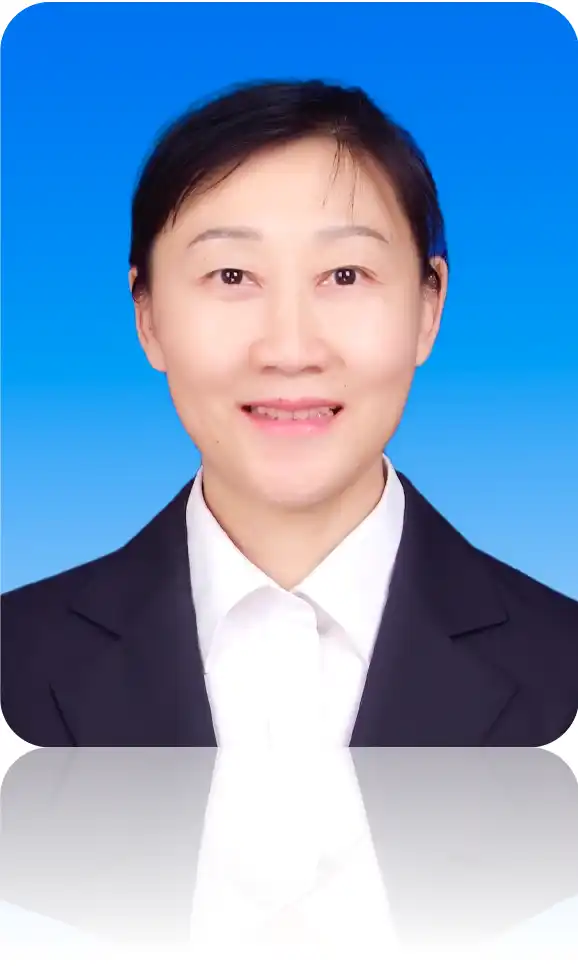
Dr. Juan Jiang (China)
Professor, Doctoral Supervisor, School of Wushu and Dance, Shenyang Sport University
Dr. Juan Jiang is a Class-Three Professor and Doctoral Supervisor at the School of Wushu and Dance, Shenyang Sport University, and a member of the Academic Degree Committee. She leads the provincial first-class course and Ministry of Education “Tuojin Plan” course Health Qigong. She is a Liaoning Provincial Teaching Master, Excellent Teacher, Outstanding Master’s Supervisor of Shenyang, and a national advanced individual in Health Qigong promotion. She holds the 8th Duan in Health Qigong, the 6th Duan in Wushu, and is an International-Level Health Qigong Judge, National-Level Wushu Taolu Judge, and National-Level Social Sports Instructor.
She has published three monographs, edited multiple national and institutional textbooks, and led award-winning courses featured on the “Xuexi Qiangguo” platform. She has hosted 1 sub-project of a National Social Science Major Project, 16 provincial/ministerial-level projects, published over 40 papers (SCI, SSCI, A&HCI, EI, and core journals), and received 6 provincial research awards.
An experienced referee, Dr. Jiang has officiated at world, national, and provincial Wushu and Health Qigong competitions, and as coach has led teams to multiple national titles. Internationally, she has taught in the U.S., Germany, Serbia, Slovenia, Portugal, the Netherlands, Belgium, Brazil, and more, including at Yale University, the University of Ljubljana, and the EU Commission.
Her work integrates teaching, research, competition, and global exchange, advancing the promotion of Health Qigong and traditional Chinese sports culture.
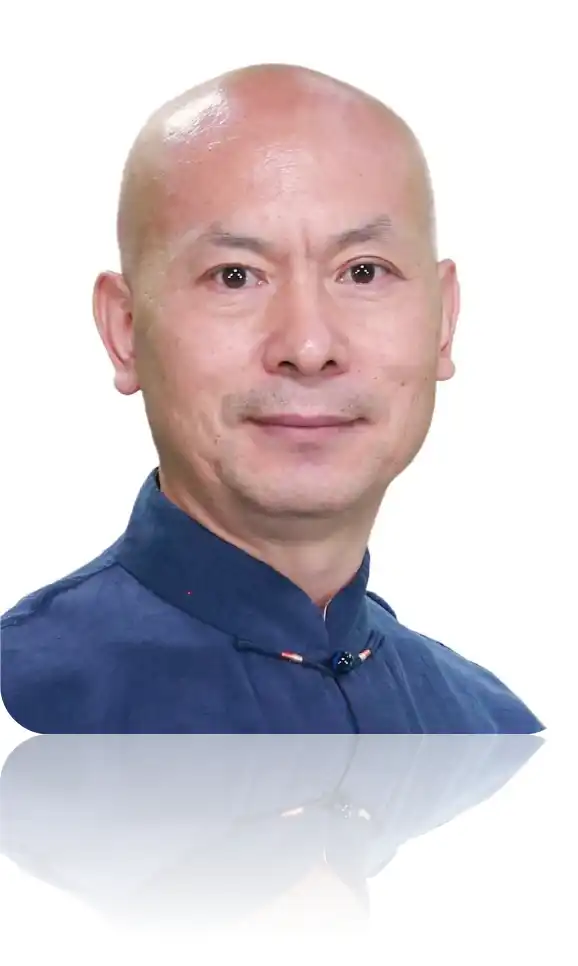
Prof. Xiaojun Wang (China)
Professor, Doctoral Supervisor, Beijing Sport University
Prof. Xiaojun Wang is Professor and Doctoral Supervisor at Beijing Sport University, core expert of the Chinese Expert Group on Exercise Prescription, and founder of the “Traditional Chinese Medicine Exercise Prescription” and “Aquatic TCM Exercise Therapy” systems. A Certified Clinical Exercise Physiologist (ACSM-CEP) of the American College of Sports Medicine, he also serves as Director of the Traditional Sports Health Research Center and Chair of the International Forum on Traditional Sports Health.
He is Chair of the Aquatic TCM Exercise Therapy Committee of IATA-China, Vice Chair of the Aquatic Exercise Therapy Subcommittee of the Chinese Society of Physical Medicine and Rehabilitation, Vice Chair of the Aquatic Rehabilitation Committee of the China Disabled Persons’ Rehabilitation Association, Executive Director and Chair of the Martial Arts Medical Research Association of the Chinese Folk Medicine Association, and Expert Committee Member of the International Wuyi Federation and the Chinese Health Qigong Association. One of China’s first certified international trainers for Taijiquan and Health Qigong, he has authored over ten monographs, led more than ten national and provincial research projects, and published over 20 papers in SCI and core journals.
His “Oxygen Breathing Exercise” earned a Guinness World Record, and his “Eye-Strengthening Qigong” was recognized as a National Outstanding Sports Science Popularization Work. He has promoted TCM exercise therapy in over 20 countries, including the USA, Canada, UK, Spain, Germany, and Japan.
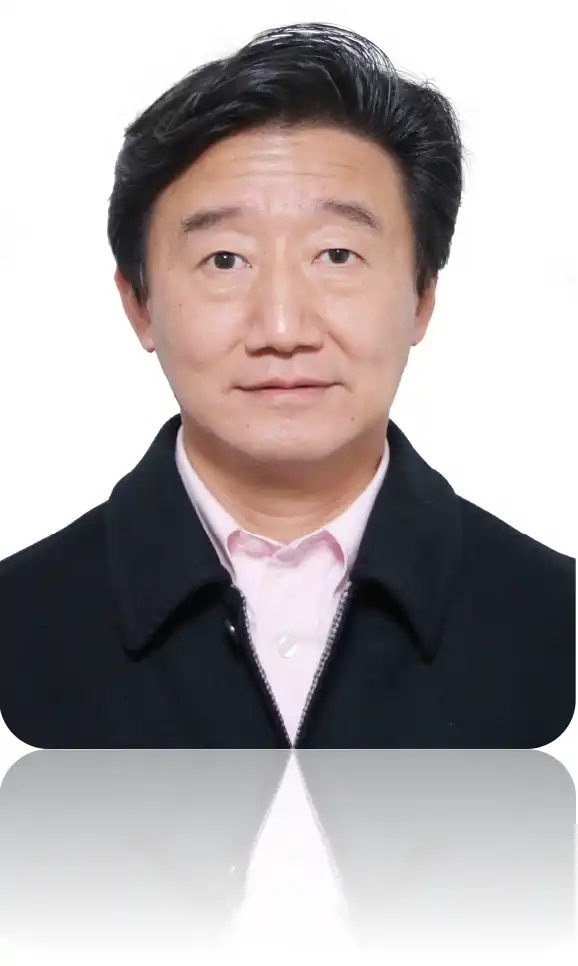
Dr. Tianyuan Yu (China)
Professor, Chief Physician, Doctoral Supervisor, Beijing University of Chinese Medicine
Dr. Tianyuan Yu, Professor, Chief Physician, and Doctoral Supervisor at Beijing University of Chinese Medicine, is also an adjunct Doctoral Supervisor at Jiangxi University of Chinese Medicine and Distinguished Professor at Beijing Union University. He holds a Ph.D. in Integrated Chinese and Western Medicine and M.Sc. and B.Sc. degrees in Acupuncture and Tuina. Recognized as a Famous Veteran TCM Doctor in Xicheng District, he also serves as a clinical expert for the Chaoyang District Health Commission.
Dr. Yu leads the National Administration of TCM’s Key Discipline of Tuina and the Ministry of Education’s “Double First-Class” Discipline and Course in Tuina. His research focuses on tuina mechanisms for peripheral nerve injury and pediatric tuina for fever reduction. He has presided over seven National Natural Science Foundation projects, two Ministry of Science and Technology projects, three Beijing Natural Science Foundation projects, and numerous provincial and university-level studies.
Author of more than 200 papers and over 100 books, Dr. Yu has edited 11 national textbooks, developed five technical standards, and holds four patents. He has trained 25 Ph.D. and 77 M.Sc. students, earning honors such as Beijing Higher Education Teaching Master and China’s Most Beautiful Rehabilitation Science Worker. He chairs or serves as vice chair of multiple national academic committees, contributing significantly to tuina education, research, and clinical practice.
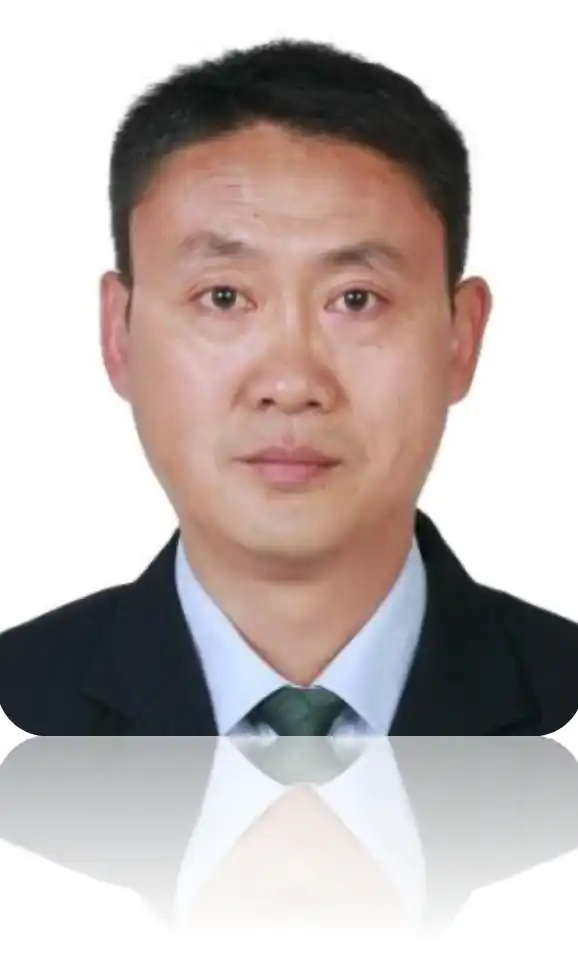
Dr. Naxin Zhang (China)
Professor Naxin Zhang, Dean, Master’s Supervisor
Professor Naxin Zhang is Dean of the School of Physical Education (Taijiquan School) at Henan Polytechnic University, where he also serves as a professor and master’s supervisor. His research focuses on sports education, public sports management, and the inheritance and development of Taijiquan.
He has presided over and participated in more than ten national and provincial projects, including those funded by the National Social Science Foundation and the Publicity Department of the CPC Central Committee, with total research funding exceeding 2 million RMB. Professor Zhang has published over 30 academic papers in leading journals such as the Journal of Beijing Sport University and the Journal of Xi’an Physical Education University, addressing topics including Taijiquan cultural heritage, reform of public sports curricula, and the modernization of traditional sports.
In addition, he has authored one academic monograph and contributed to three provincial-level textbooks. His research achievements have been successfully applied to teaching practice, promoting the integration of Taijiquan with higher education in sports. Professor Zhang’s contributions have been widely recognized, earning him a First Prize in Provincial Teaching Achievement Awards. Through his academic work, leadership, and social service, he actively advances the international promotion and cultural exchange of Taijiquan and physical education.
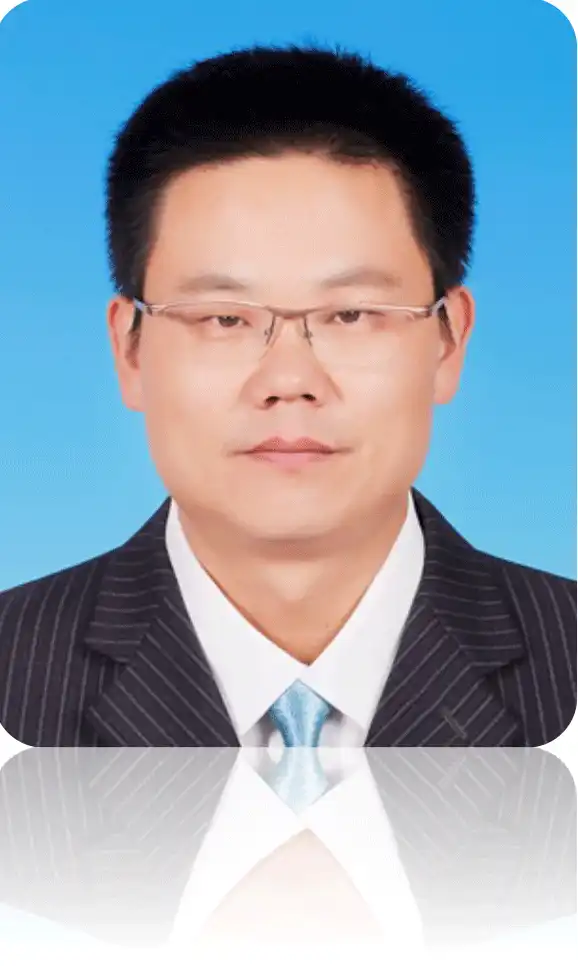
Dr. Maolin Zhang (China)
Dean of the Wushu College at Shandong Sport University and a Master’s Supervisor,
Dr. Maolin Zhang recognized for his outstanding contributions to martial arts education and research. As a Distinguished Teacher of Shandong Province, he has played a leading role in curriculum development and talent cultivation, nurturing a new generation of martial arts professionals. Dr. Zhang actively participates in national and provincial research projects and serves as a member of the Scientific Research Committee of the Chinese Wushu Association, advancing the academic development and international recognition of Wushu. In addition to his academic achievements, he is an International Referee for Dragon and Lion Dance and a National Social Sports Instructor, frequently serving as referee and technical consultant for major competitions both in China and abroad. He also holds the position of Executive Vice President of the Shandong Dragon and Lion Dance Association, where he has been committed to promoting the popularization, standardization, and international dissemination of traditional Chinese sports. With remarkable accomplishments in research, teaching, social service, and cultural exchange, Dr. Zhang is regarded as a leading figure in martial arts education and an influential contributor to the preservation and innovation of traditional Chinese physical culture.
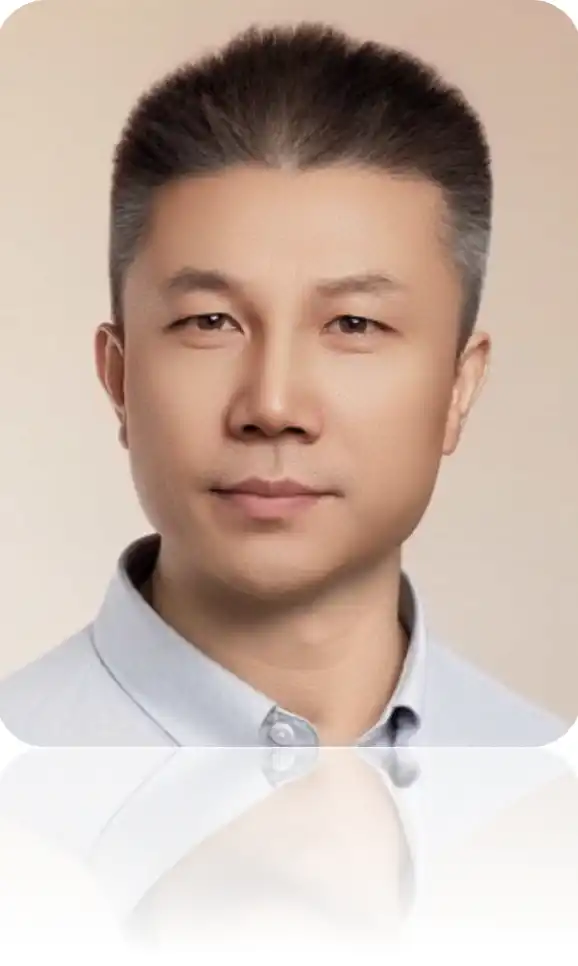
Dr. Changnian Zhang(China)
Vice Dean, Professor, Doctoral Supervisor of the School of Wushu and Performance at Capital University of Physical Education and Sports
Zhang Changnian (b. 1980, Anhui, China) is Professor and Associate Dean of the School of Wushu and Performance at Capital University of Physical Education and Sports. He also directs the Ministry of Education’s Wushu Training and Research Base for International Chinese Promotion, serves as Expert Member of the Blue Book of World Taijiquan, and Deputy Secretary-General of the Beijing Society of Gerontology and Geriatric Medicine.
He earned his degrees from Anhui Normal University, Beijing Sport University, and Soochow University, and was a Visiting Scholar at Yale University. A 7th Duan holder and National First-Class Wushu Judge, he is the recognized inheritor of “Hulei Taijiquan” and International Ambassador for Taijiquan Culture.
Dr. Zhang has led national and provincial research projects, published over 200 academic papers, and authored or edited seven books and textbooks. His research focuses on Wushu culture, traditional sports development, and health promotion. He created the “Taiji Twelve Skills” training system and seated Taijiquan/Qigong routines for elderly and disabled groups. A champion at the 2005 World Traditional Wushu Festival, he has promoted Wushu in more than 20 countries worldwide.
"
















